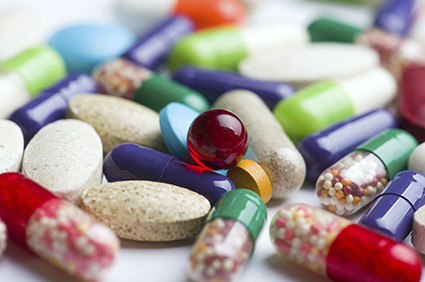Did you know that pharmacies across Canada have take-back programs for your medications and supplements? Unfortunately, according to the federal government, the vast majority of medications are either thrown in the garbage or flushed down the toilet, and “end up in the environment, especially in the soil and in the water.”

What else do we need to know about taking medications?
Global News spoke with Karen Lam, manager of Sunnybrook Health Sciences Centre’s outpatient pharmacy. She answered some of the most common drug questions.
Best place to store medications?
The best place to store medications is not in the bathroom because the humidity could cause degradation. Ideally, store most medications “on a shelf, that is room temperature and away from direct sunlight,” Lam told Global News. If you are directed to store your medication in the refrigerator, pick a spot on a middle shelf or in a drawer. Not at the back of the fridge where it might freeze, or on the door where the temperature fluctuates.

Can I take my medications with any beverage?
It is best to take medication with water. Grapefruit juice should not be taken with certain medications. On the other hand, absorption of iron supplements can be improved with a glass of orange juice. Considering there are variations, unless you have spoken with a pharmacist, “most medications – the safest bet is with water,” said Lam.
![Lam says with most medications “the safest bet is [to take it] with water.”](https://globalnews.ca/wp-content/uploads/2015/11/pills-before-bedcrop2-425x282.jpg?quality=85&strip=all&w=425)
What should I do when I miss a dose?

Get weekly health news
It depends on the medication and when it is supposed to be taken. As an example, if the medication is taken once a day, every day and you miss it by two hours, then take it as soon as you remember, but if “it’s a whole day almost closing in on the next dose already… just skip that dose and continue on with the next one,” said Lam.

Can I break or crush my medications?
What should you do with old prescriptions or supplements?
All medications – over-the-counter and physician prescribed medications can be returned to a pharmacy for safe disposal.
“The policy is for us to take back all medications, regardless of whether that pharmacy has dispensed it or not,” said Lam.
According to the federal government, take-back programs include:
- prescription drugs
- over-the-counter medications
- natural health products
These drugs are not supposed to be flushed or thrown into the garbage. “It’s safer to bring it to the pharmacy and we properly dispose of it so it doesn’t end up in the landfill and in the water,” said Lam.
Before you take your medications to the pharmacy, sort out any needles (even auto-injectors) and syringes, they are disposed of separately.




![“It’s better to ask, [before you] break a tablet in half not knowing if it’s going to affect your health or not,” says Lam.](https://globalnews.ca/wp-content/uploads/2015/11/penicillin-one.png?w=720)




Comments